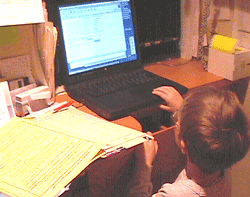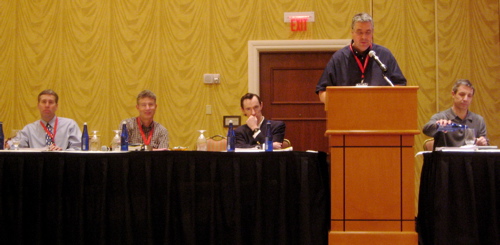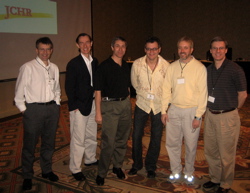Alaska Blind Child Discovery
Amblyopia Treatment Studies
Home
ABCD History

Kids Eye Disorders
Amblyopia
Vision Screening
To enroll in an ATS trial, children must be diagnosed with amblyopia and NOT have had recent amblyopia therapy. They must have a recent cycloplegic refraction and proper spectacle trial. Each must undergo a standardized acuity test using EVA (surround HOTV or ETDRS) protocol. ALL ATS acuity measurements must be done with the non-tested eye patched. Parents are then offered the option to enroll their amblyopic child into a treatment phase which randomizes the child to one of two accepted doses of treatment; either some form of patching or atropine penalization of the better eye.
Issues
ABCD Clinics
References
Contact ABCD
PEDIG papers
ATS-11 terminated
ATS-12 terminated
ATS-13 current
ATS-14
ATS-15
ATS-16
ATS-17
Bangerter filters for amblyopia
Final Ramp-up for residual amblyopia
Vision Therapy Pilot StudySpectacles for Strabismic Amblyopia
Levodopa Pilot Study
Increasing Patching for Amblyopia
Augmenting Atropine Treatment for Amblyopia
Levodopa for Residual Amblyopia
X01 spectacles for new amblyopic patients
Corneal Thickness
NLD-2: stent vs balloon for recurrent NLD
NLD-3: office now vs OR probe later NLD
IXT-1: BLR vs R&R for intermittent exotropia
IXT-2:

Active PEDIG recruiting Investigators: Robert Arnold, Jonathan Holmes, Mike Repka, Nick Sala, David Silbert and Darren Hoover. Dr.s Holmes and Repka oversee PEDIG with Dr. Roy Beck.

Devoted Leaders of PEDIG and the JAEB Center: Don Evertt (NIH), Roy Beck (JAEB), Jonathan Holmes (Mayo), Ray Kraker (PEDIG), Mike Repka (Johns Hopkins)
